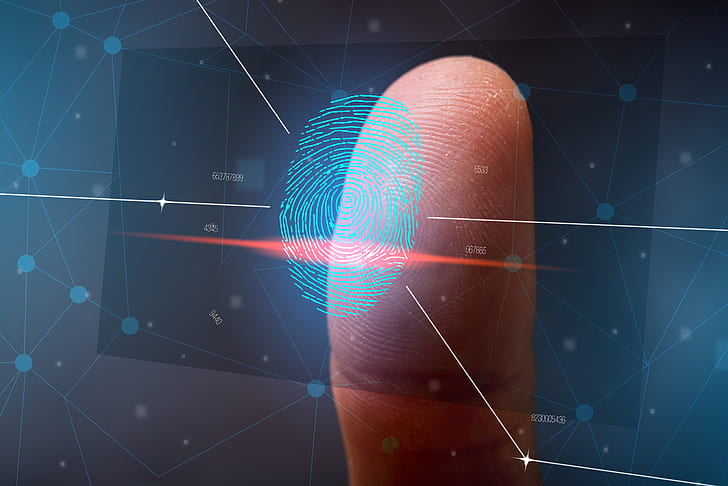Ph.D. in Biometrics: Introduction, Admission, Registration, Eligibility, Duration, Fees, Syllabus 2024

Introduction:
A Ph.D. in Biometrics offers the opportunity to delve deep into the interdisciplinary fields of data science, biology, statistics, and technology, focusing on methods to measure unique physical or behavioral characteristics. This advanced degree equips graduates to tackle some of the most intriguing and relevant issues in security, identification systems, and biometric technology development today.
Admission Process:
- Application Submission: Submit a detailed application including personal statements, research proposals, and past academic records.
- Entrance Exams: Clear relevant entrance exams (e.g., GRE), specific to the institution’s requirements.
- Interviews: Attend interviews focusing on your research interests and academic competence.
- Research Proposal Approval: Often, a detailed research proposal needs approval before admission.
- Letters of Recommendation: Provide letters from academic or professional references that can vouch for your expertise and commitment.
Eligibility Criteria:
- Master’s Degree: A Master's degree in biometrics, statistics, computer science, or related field, typically with a high academic standing.
- Research Experience: Proven experience in research, publications, and relevant projects.
- Technical Skills: Proficiency in programming languages and tools commonly used in biometrics.
- Statistical Knowledge: Strong background in statistical analysis and data handling.
- Professional Recommendations: Strong recommendations from academics or professionals in the field.
- Language Proficiency: For non-native speakers, proficiency in the language of instruction is crucial, often validated through tests like TOEFL or IELTS.
Completion Time:
A Ph.D. in Biometrics usually takes about 3-5 years to complete, depending on the student's pace, the complexity of the research topic, and the specific requirements of the program.
Career Opportunities:
- Academic Researcher/Professor: Specialize in biometric research and teach at universities.
- Biometric System Designer: Design and develop advanced biometric identification and verification systems.
- Security Consultant: Provide expertise in enhancing security protocols using biometric technologies.
- Government Advisor: Advise on and develop biometric systems for national security.
- R&D Manager: Lead research and development teams in tech companies.
- Forensic Specialist: Work with law enforcement to develop or improve forensic biometric applications.
Syllabus:
- Advanced Biostatistics: In-depth study of statistical methods in biometric research.
- Biometric Systems: Detailed exploration of various biometric modalities such as fingerprints, facial recognition, and iris scans.
- Machine Learning and AI: Application of AI techniques in the enhancement of biometric systems.
- Ethics and Privacy in Biometrics: Study of ethical concerns and privacy issues surrounding biometric technology.
- Research Methodology: Comprehensive training in research methods and data analysis.
- Project Management: Skills for managing large-scale biometric projects.
Internship Opportunities:
- Tech Corporations: Intern with companies specializing in security and biometric technologies.
- Research Institutions: Engage with ongoing research projects in academic or government research labs.
- Security Agencies: Experience firsthand the application of biometrics in security.
- Biometric Startups: Explore innovative applications and business models in startups.
- Healthcare Facilities: Implement biometric technologies in patient identification and tracking systems.
Scholarships and Grants:
- University Fellowships: Many institutions offer fellowships specific to biometrics or related fields.
- Government Grants: Available for projects that align with national security interests or technological advancements.
- Private Foundations: Grants from tech foundations focusing on innovation and research.
- International Scholarships: Opportunities for international students to receive funding from external bodies.
- Corporate Sponsorships: Some companies sponsor candidates who commit to working with them post-graduation.
FAQs:
What is the scope of biometrics research?
Biometrics research encompasses a broad range of areas including biological data analysis, development of identification systems, enhancement of security measures through biometric technology, and ethical implications of biometric data usage. Research in this field is highly interdisciplinary, integrating concepts from computer science, statistics, engineering, and ethics to improve and innovate biometric authentication and identification technologies.
Are there specific scholarships for women in biometrics?
Yes, several scholarships are specifically aimed at supporting women pursuing degrees in STEM fields, including biometrics. Organizations and institutions offer these scholarships to promote diversity and inclusion within the tech community. Potential applicants should seek out gender-specific funding opportunities offered by academic institutions, non-profit organizations, and corporate initiatives.
What are the prerequisites for pursuing a Ph.D. in biometrics?
Applicants typically need a Master's degree in an area like computer science, statistics, or a related field. Additional prerequisites include a strong foundation in mathematics and statistics, experience with programming and software tools relevant to biometrics, and ideally, some research experience in the field. Strong analytical skills and the ability to handle complex data sets are also crucial.
How competitive is the admission process for a Ph.D. in biometrics?
The admission process for a Ph.D. in biometrics can be quite competitive, depending on the institution and the specific program. Factors that influence competitiveness include the uniqueness and relevance of the applicant's proposed research, academic and professional qualifications, and the availability of advisors and funding in the area of interest.
